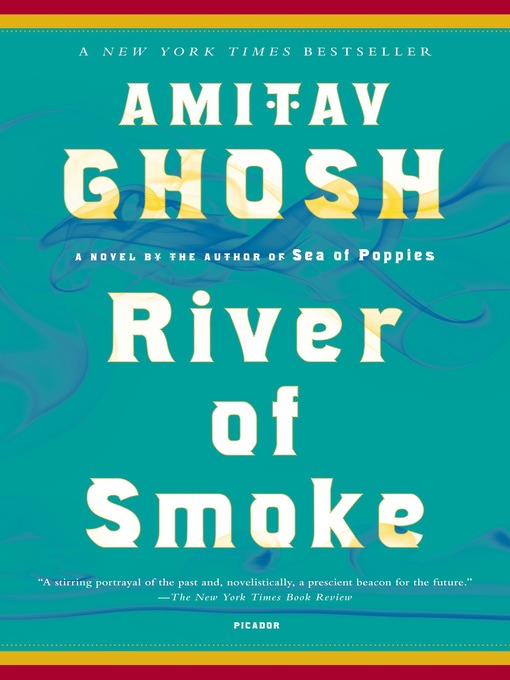A New York Times Book Review Editors' Choice
A Washington Post Notable Fiction Book of Year
A NPR Best Book of the Year
In Amitav Ghosh's Sea of Poppies, the Ibis began its treacherous journey across the Indian Ocean, bound for the cane fields of Mauritius with a cargo of indentured servants. Now, in River of Smoke, the former slave ship flounders in the Bay of Bengal, caught in the midst of a deadly cyclone.
The storm also threatens the clipper ship Anahita, groaning with the largest consignment of opium ever to leave India for Canton. Meanwhile, the Redruth, a nursery ship, carries horticulturists determined to track down the priceless botanical treasures of China. All will converge in Canton's Fanqui-town, or Foreign Enclave, a powder keg awaiting a spark to ignite the Opium Wars. A spectacular adventure, but also a bold indictment of global avarice, River of Smoke is a consuming historical novel with powerful contemporary resonance.
- Historical Fiction eBooks Available Now
- Always Available eBooks
- Always Available Comics
- Picture Books in a hurry
- Contemporary Romance
- Historical Romance
- Paranormal Romance
- Romantic Comedies (Rom-Coms)
- Always Available eBooks for All Ages
- See all ebooks collections
- Historical Fiction Audiobooks Available Now
- Available Now eAudiobooks for Adults
- Available Now eAudiobooks for Children
- Available Now eAudiobooks for Teens
- See all audiobooks collections




